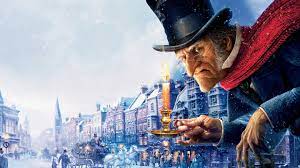My Annual Christmas Lament
 |
| Google Image |
Christmas is not my favorite time of the year.
Don’t get me wrong. I love the idea of celebrating the birth of Jesus. After Easter, Christmas is arguably the most important holiday for Christians, and I thoroughly enjoy the church liturgies of the season, filled with the Messianic prophecies from the Hebrew Bible, the music that celebrates Christ’s birth and the apparent spirit of giving that prompts so many people to think of, and act in behalf of, others.
But you have to ask the obvious question, whether celebrating the birth of Jesus is actually what we’re doing at this time of year. Is it still about Jesus’ birth? It doesn’t seem that way. On the contrary, Christmas seems to be the definitive symbol of the secularization and commercialization of society.
I’ve often thought that Christians should perhaps just give up Dec. 25 to the advertisers, the extreme decorators and extreme gift givers - the people who have forgotten or simply ignore the meaning of Christmas.
Another Date?
Maybe Christians should adopt another date, like Jan. 6, the feast of the Epiphany – celebrating the faith in Jesus that moved beyond the territory where he lived and preached – as the principal Christian holiday of winter.
Of course, this is not going to happen. Sometimes it’s hard for me, who grew up in a thoroughly Catholic family, to accept that we live in a secular, diverse and pluralistic society where you need to recognize and accept the views of people who don’t share your beliefs.
But for those who have already decided that this blog is being written by a Grinch or Scrooge, let’s take a closer look at those two characters, because for me, they are beams of light in what appears to be the wasteland that is contemporary Christmas, and they are not directly related or connected to religion.
 |
| Google Image |
In the book and films, Grinch is “misanthropic, ill-natured, and mean-tempered.” Speculation is that he was born with a heart "two sizes too small.” Though always hateful, “he especially hates the Christmas season, making particular note of how disturbing the various noises of Christmas time are to him, including the singing of Christmas carols. Unable to stand the holiday any longer, he decides to destroy it once and for all.”
Grinch disguises himself as Santa Clause and breaks into homes on Christmas Eve to steal everything they own and dump it off of a nearby mountain. On Christmas morning, he is shocked to hear the people from whom he stole still singing cheerfully, happy simply to have each other.
He then realizes that the holiday has a deeper meaning that he never considered. Inspired, he stops the people’s belongings from falling off the edge of a mountain, and in the process, his heart “grows three sizes.” He returns the gifts and gladly takes part in the people’s Christmas celebration.
Much Older
“A Christmas Carol” is a much older Christmas-conversion story. A novella by Englishman Charles Dickens, it recounts the story of Ebenezer Scrooge, an elderly miser who is visited by the ghost of his former business partner, Jacob Marley, and the spirits of Christmas Past, Present and Yet to Come.
After their visits, Scrooge sees things differently, recognizing the importance of Christmas in the lives of others, especially children and the poor, and is transformed into a kinder, gentler man.
Most people can relate to both stories, even when they’re unmoved by the story of Jesus’ birth. The two stories are mainly about compassion and kindness, which is at the heart of Jesus’ birth and his message.
The First Letter of John in the Christian Bible sums up this message: “...Anyone who does not love his brother whom he has seen, cannot love God whom he has not seen.”



Comments
Post a Comment